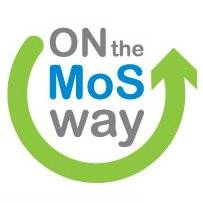If sea-going vessels were better informed about the availability of berths and adapted their speed accordingly, substantial savings could be made in terms of fuel and CO2 emissions.
This conclusion is based on a study that was recently commissioned by the Port of Rotterdam Authority and research institute TNO.
“Last year we asked the Wuppertal Institute to look into how the transport and logistical sectors could operate virtually CO2 emission-free by 2050. They said that our first step should be to take efficiency measures. This study shows that those measures are within reach,” said Allard Castelein, CEO of the Port of Rotterdam Authority.
Real-time updates
TNO and the Port of Rotterdam Authority, which is a member of the ‘Global Industry Alliance to support low carbon shipping’, analysed all the movements of container ships sailing to Rotterdam port in 2017.
The study showed that if sea-going vessels are regularly kept informed – particularly during the last twelve hours before arrival – about exactly when their berth will become available, they will be able to adapt their sailing speed accordingly and save thousands of tonnes of CO2 emissions.
Significant cost savings are also possible thanks to shorter waiting times for ships in anchorage areas, with a potential annual reduction of 35% in emissions, 188,000 tonnes of CO2 and 1,000 tonnes of nitrous oxides.
The results of the study were presented this week at the head office of the International Maritime Organisation (IMO) in London during a meeting of the IMO inter-sessional working group on the reduction of Greenhouse Gas emissions from ships.
Earlier this year, the Port of Rotterdam Authority launched ‘Pronto’, a port call optimisation platform which combines a variety of data sources so that a port call by a vessel can be planned as accurately as possible.
Source: OnTheMosWay

